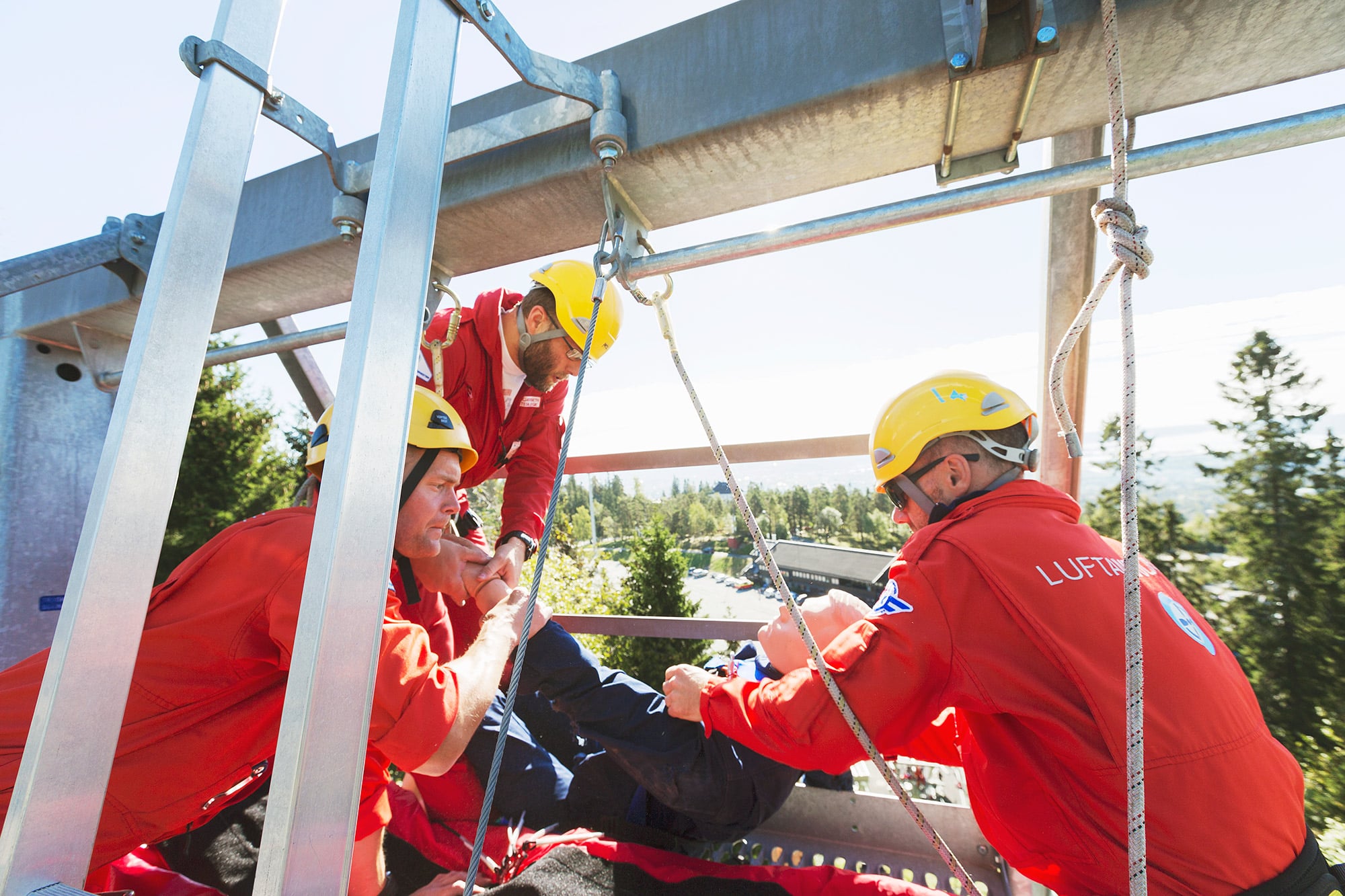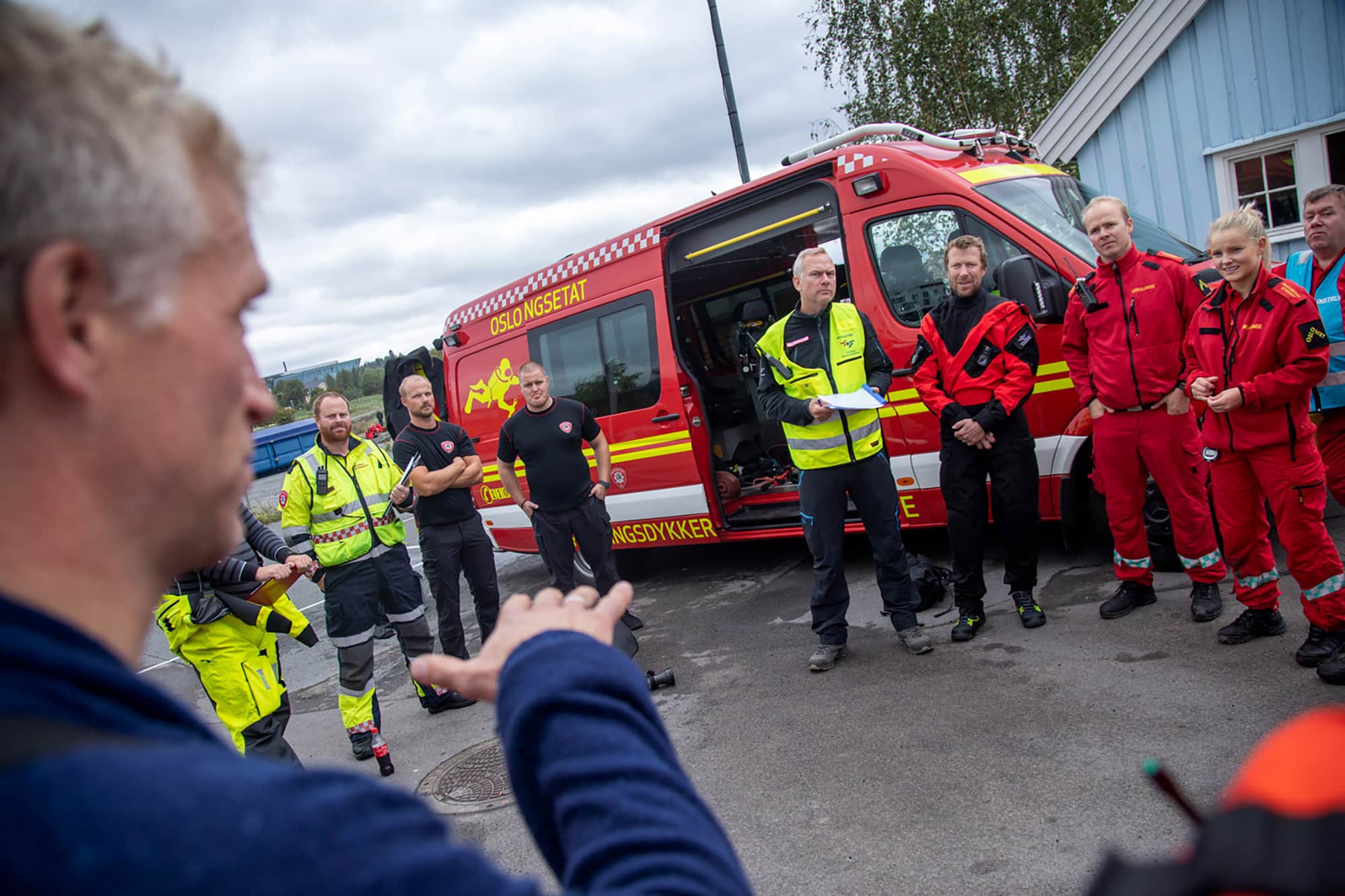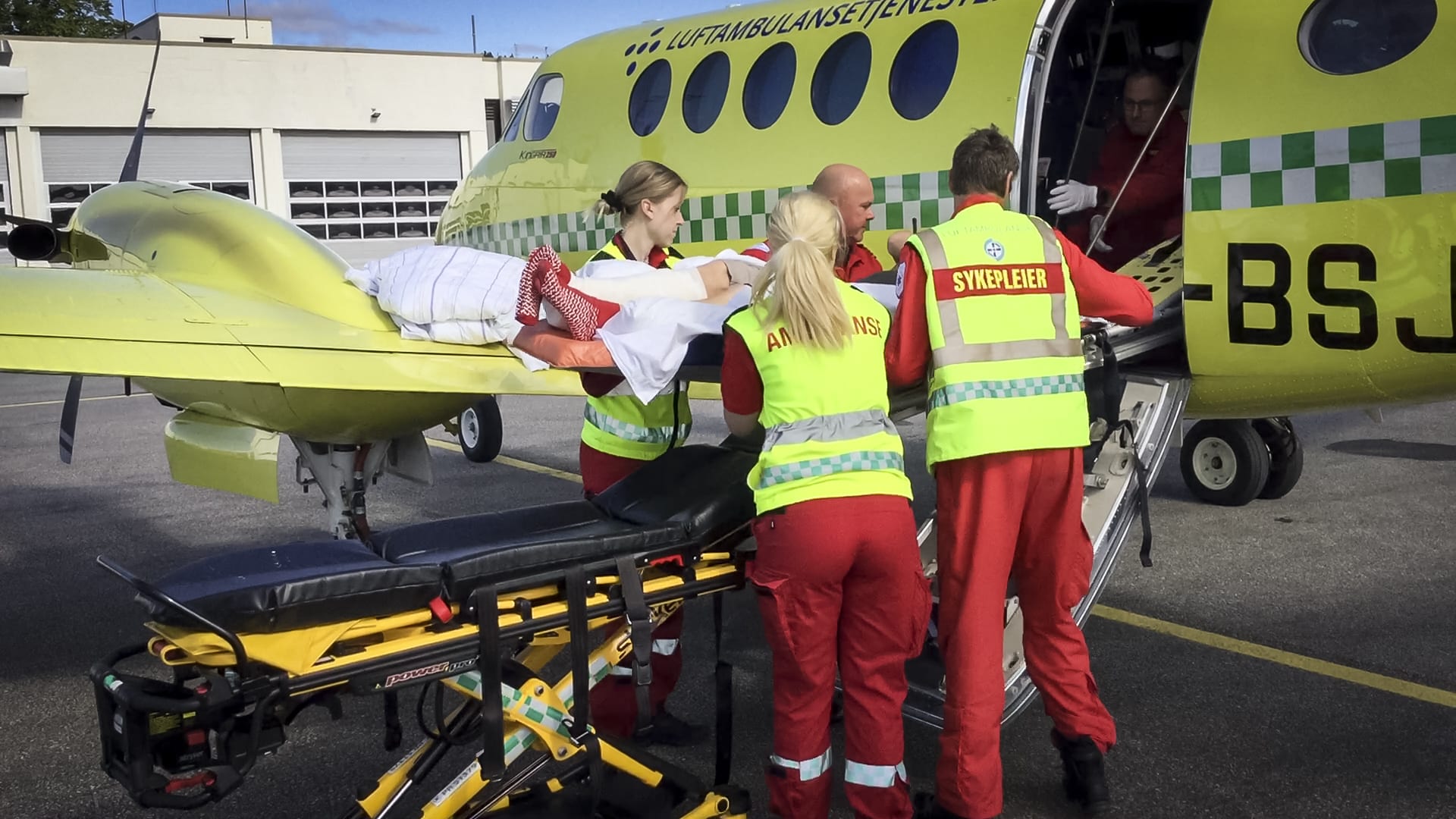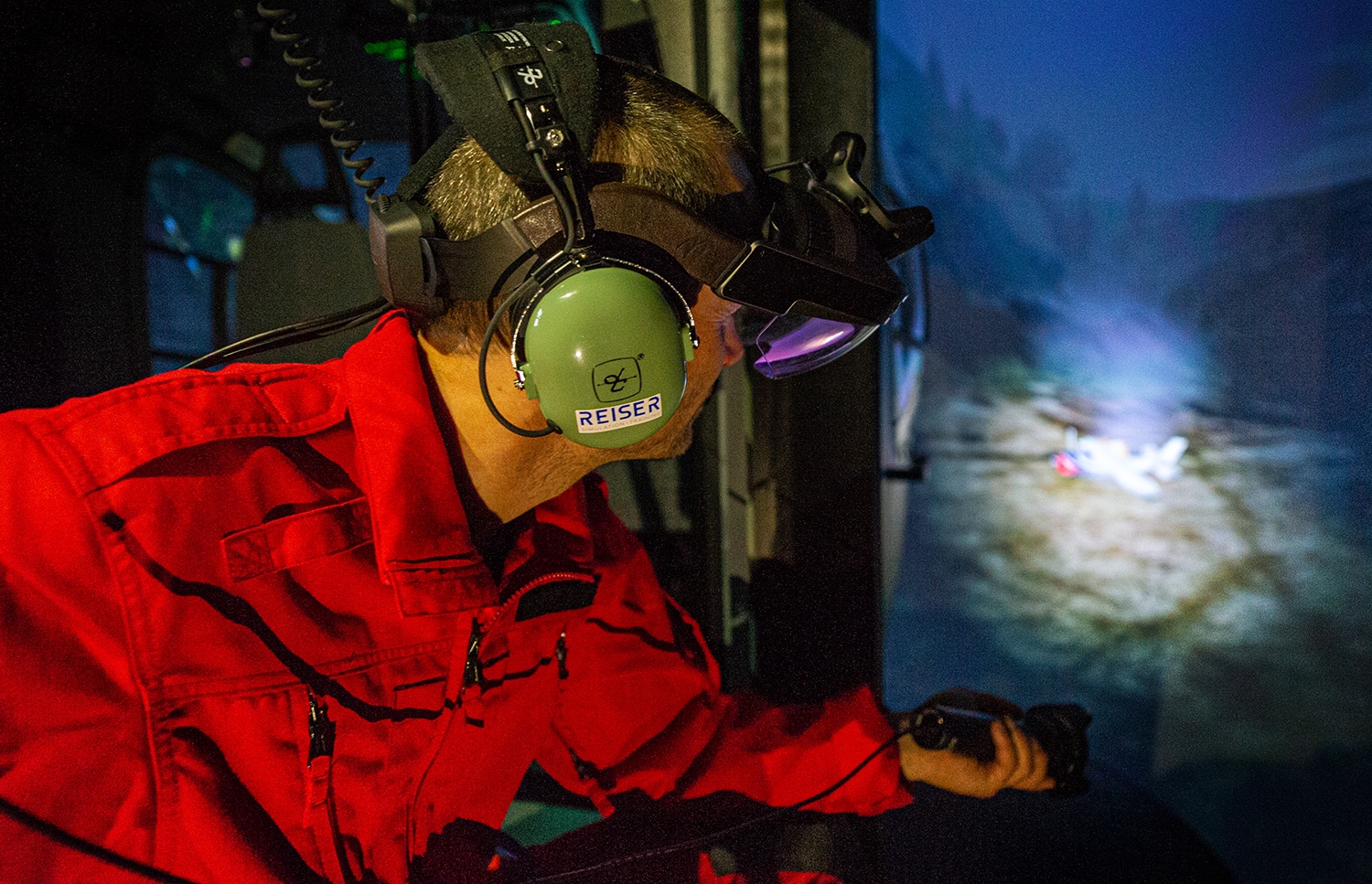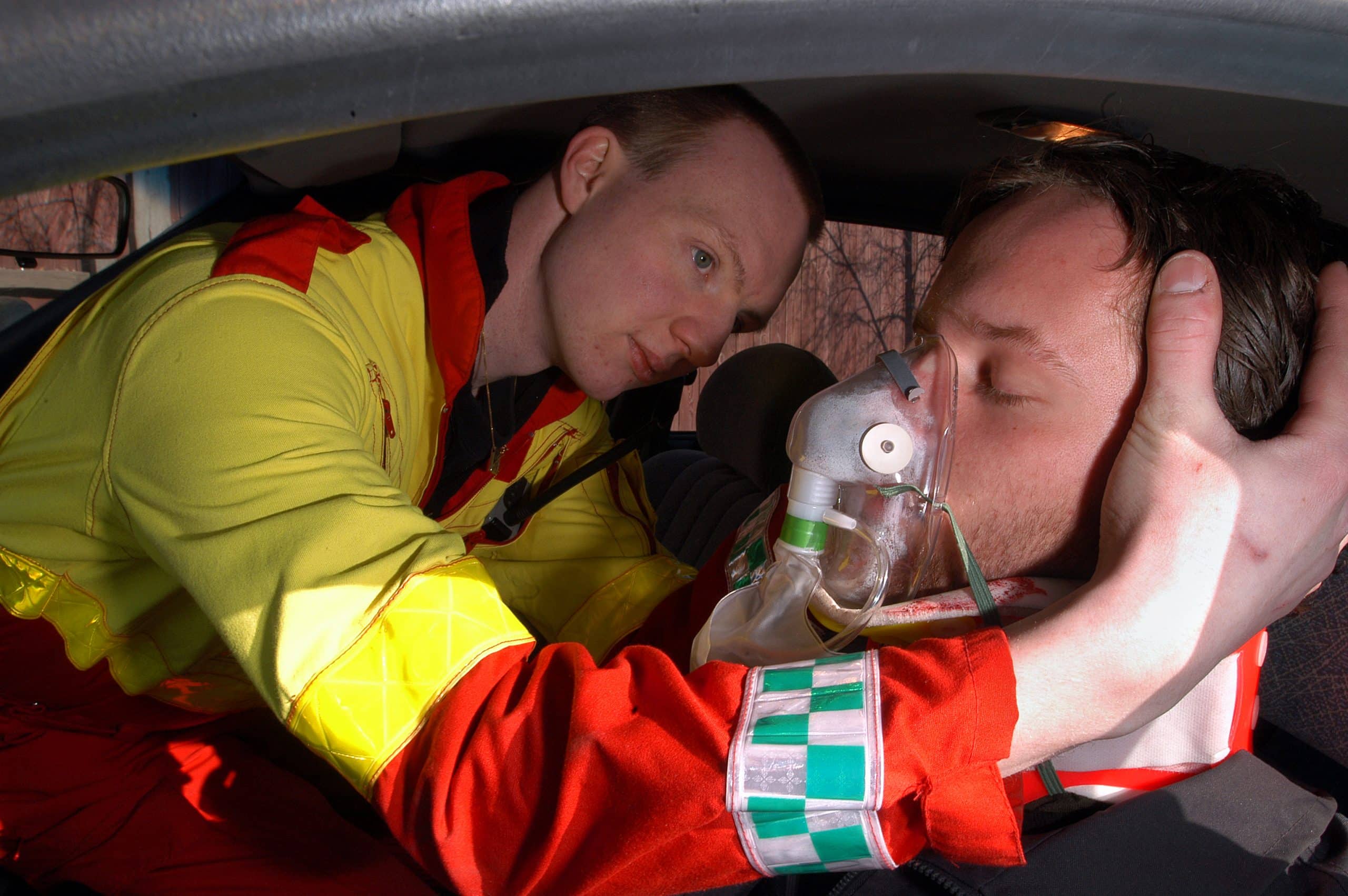Skill development – we are better together
High competence in emergency services is important. That is why we spend just over MNOK 50 a year on raising the skills of air ambulance personnel, ambulance workers, the police, and the fire service. We do everything we can to get better together and together save more lives.
Training camp for the crews
The annual training camp is arranged to strengthen the collaboration and ensure high quality and safety for patients and crew in the air ambulance. The crews are allowed to train undisturbed by emergency alarms and more than what are the formal requirements in the operator contract with the state.
Being good together when it’s needed
For more than 20 years, the Norwegian Air Ambulance Foundation has arranged courses in inter-agency emergency medical cooperation for rescue personnel in Norway. “Absolutely crucial when accidents occur”, says the fire chief in Meldal.
Testing app in ambulances to detect stroke earlier
Can paramedics use an app to do the same examination as the stroke doctors at the hospital? A groundbreaking research project will provide knowledge and the opportunity for rapid diagnostics already in the ambulance.
Making courses in aviation medicine
How do we ensure the safe transport of patients by plane and helicopter? We train air ambulance personnel to cope with turbulence, thin air, and cramped aircraft cabins.
Doctors train in simulator
We have put the air ambulance doctors into the helicopter simulator to train with the rest of the crew. The goal is to make the flight even safer, both for patients and crew.
We make ambulance workers even better at their jobs
In AMLS (Advanced Medical Life Support) and PHTLS (Pre Hospital Trauma Life Support) courses, paramedics learn life-saving treatment, so that the critically ill and injured patients across the country are met with the same, quality-assured methods.
